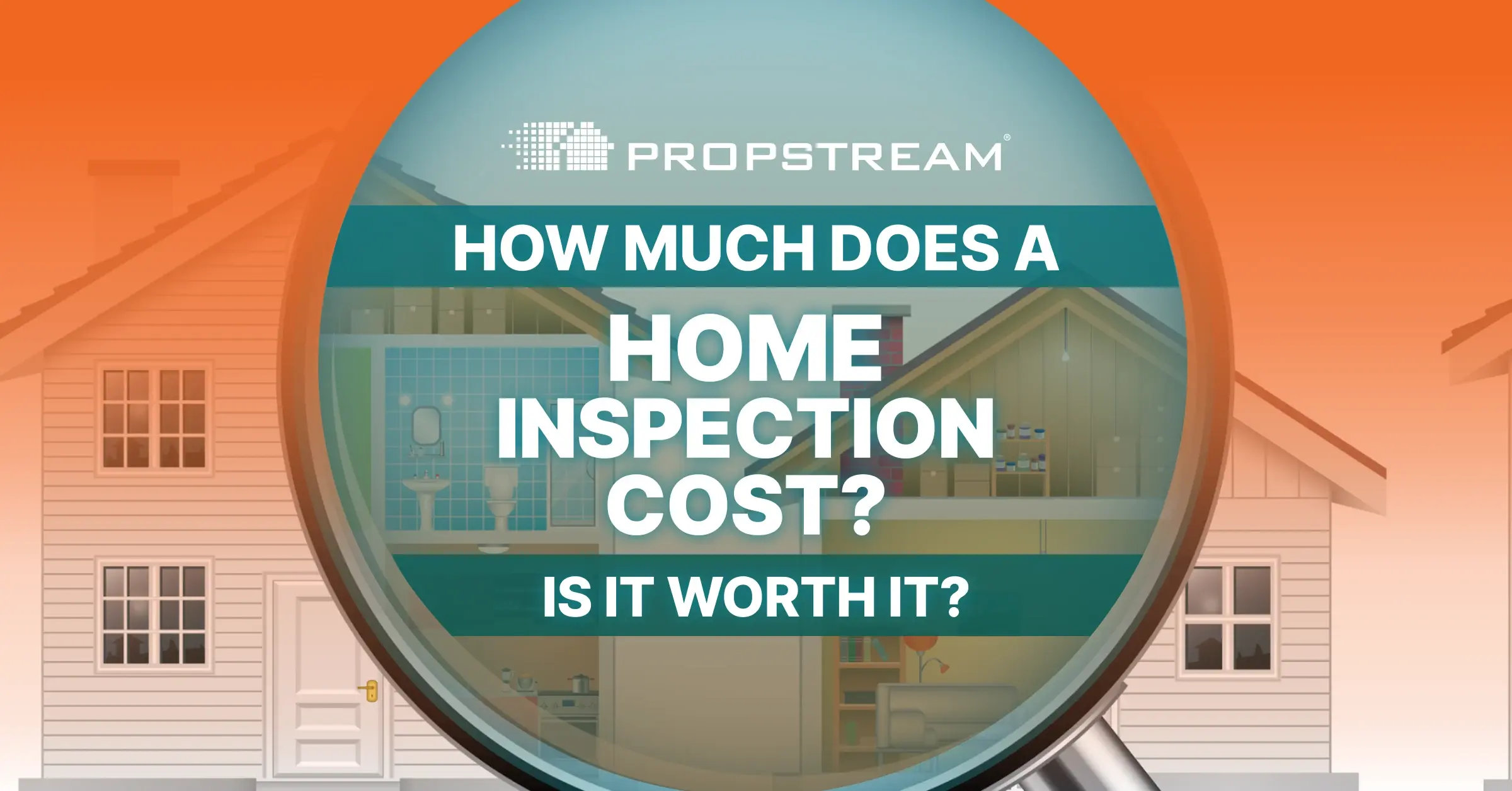Disclaimer: PropStream doesn’t offer investment or tax advice. This article is for educational purposes only. We recommend consulting financial and tax professionals before investing in rental properties or REITs.
Choosing between REITs and rental properties can be challenging. Both can be effective real estate investing strategies, but the right choice depends on your financial goals, risk tolerance, and preferences.
In this article, we’ll explain the differences between REITs and rental properties and the pros and cons of investing in each.
Table of Contents |
Key Takeaways:
Choosing between REITs and rental properties requires careful consideration of your financial goals, risk tolerance, and preferences.
REITs can provide passive income with lower investment minimums, making them more accessible. However, investors sacrifice control over property management decisions and may face stock market correlations and lower potential appreciation.
Owning rental properties grants more control over property decisions and the potential for higher appreciation. It can serve as a hedge against stock market fluctuations and allows the use of leverage. However, landlords face illiquidity, concentration risk, hands-on management, and higher upfront costs, requiring more real estate expertise.
Rental Property vs. REITs: What’s the Difference?
Rental property
Investing in rental property involves direct ownership of single-family or multifamily real estate. As the owner, you control rent prices, which tenants to accept (within the limits of fair housing laws), and when to sell. However, you’re also responsible for handling the rental acquisitions, financing, marketing, tenants, maintenance, etc.
Ideally, the rental income you generate exceeds your total property expenses, which include the mortgage, taxes, insurance, maintenance, and repairs. Whatever is left over after paying for these expenses is your profit or cash flow.
Real estate investment trust (REIT)
A real estate investment trust (REIT) is a company that invests in many rental properties (and sometimes mortgages). Each REIT has a unique portfolio and investing strategy.
Individual investors can buy REIT shares to earn a portion of its profits. By law, REITs must pass on at least 90% of their taxable income to shareholders.
Unlike direct ownership in rental property, owning REIT shares doesn’t give you control over how the fund is managed or which properties it holds. That’s left to fund managers.
Now that you know the core differences between a rental property and a REIT, here are the pros and cons of investing in each.
Pros of Investing in REITs
.png?width=730&height=486&name=houseandmoney%20(1).png)
Diversification. A single REIT can hold thousands of properties. Additionally, it may have various property types (multifamily, single-family, commercial, etc.) and asset types (equity and debt). This helps investors diversify their real estate investment to limit risk. For example, if one property underperforms, other properties may offset the loss.
Liquidity. Like stocks and bonds, publicly traded REITs can be bought and sold on the stock market. Consequently, you don’t have to tie up your money for long periods. You can exit the investment at nearly any time.
Low investment minimums. Because REITs split their ownership into many shares, you can invest in them for relatively little. Some REITs sell for as little as a few dollars. This can lower the barrier to entry for first-time real estate investors.
Passive income. REIT investors don’t need to help acquire, finance, or manage the fund’s underlying assets. Professional fund managers handle all of that. Consequently, you gain exposure to real estate without the hassle of direct ownership.
Pass-through taxation. Because REITs pass on most of their income to shareholders, they aren’t taxed at the corporate level. Only shareholders are taxed. This increases total returns by avoiding double taxation at the corporate and individual levels.
Less expertise is needed. The passive nature of REIT investing makes it relatively accessible, so you don’t need to understand some of the more intricate inner workings of real estate to invest. However, you should still understand the relevant risks and benefits involved.
Cons of Investing in REITs
Less control. As a REIT shareholder, you have limited to no control over how the fund’s properties are selected and managed, the timing of sales, rent and lease terms, tax planning, and other decisions. As a result, REITs may not be the best option if you prefer a more hands-on approach.
Stock market correlation. Publicly traded REITs tend to correlate to fluctuations in the stock market. This means they may provide little diversification against stocks and bonds. Non-traded REITs, however, aren’t associated with the stock market.
Market volatility. Because publicly traded REITs tend to correlate with the stock market, they may experience the same ups and downs. If the stock market goes up, REITs will likely follow. If the stock market goes down, REITs probably will, too. Again, non-traded REITs are an exception.
Lower potential appreciation. REITs are designed mainly to generate dividend income for shareholders. Consequently, there is little, if any, income left to reinvest in the fund’s underlying assets, which appreciate at a slower rate as a result.
Lower average yields. Dividend yields for REITs tend to be in the lower single digits. This is because REITs typically hold lower-yield institutional assets. Plus, the fund managers charge management fees that can eat into your profit margins.
Dividends are taxed as ordinary income. The IRS treats REIT dividends as ordinary income, meaning they are taxed at the same rate as your regular income, typically higher than the tax rate for long-term capital gains.
Pros of Investing in Rental Property

Control. Owning rental property directly gives you a more active role in the investment. You decide which properties to acquire, how to structure deals, what rent to charge, when to make renovations, etc. All of this provides added freedom and flexibility.
Higher potential appreciation. Rental properties aren’t burdened by SEC regulations or professional management fees (unless you hire a property manager). Consequently, it’s easier to reinvest rental income to force appreciation. For example, you could add an ADU or upgrade the appliances to raise the property’s value (and raise rent).
Hedge against the stock market. Unlike publicly traded REITS, real estate itself has a low correlation with the stock market. So, if the stock market goes down, having direct ownership of rental property can help offset your losses.
Ability to use leverage. When you buy a rental property, you can often finance up to 80% of it, putting down as little as 20% (or potentially less if you are house hacking) while earning 100% of the rental income. Keep in mind that the more you leverage an investment, the more risk you take. However, leverage lets you seize opportunities you wouldn’t otherwise be able to. In contrast, REITs tend to finance below 40% of their underlying assets due to stricter regulations.
Tax deductions. Landlords can take advantage of many tax deductions. For example, you may be able to write off your mortgage interest, property taxes, home insurance, legal fees, maintenance and repair costs, and more. You may also be able to deduct the depreciation of your rental property (the building, not the land) over 27.5 years. Consult a tax professional to learn more.
Capital gains treatment. If you hold rental property for over a year, the proceeds from the sale may be taxed at a long-term capital gains tax rate, which is generally lower than ordinary income tax rates.
Potential for 1031 exchanges. Landlords can typically defer paying capital gains taxes after a property sale via a 1031 exchange. This involves buying a similar property of equal or higher value with the sale proceeds within a specific timeframe and can help free up more capital to reinvest. If you conduct 1031 exchanges back to back, you may be able to put off paying capital gains taxes indefinitely. REITs don’t qualify for 1031 exchanges.
Cons of Investing in Rental Property
Illiquidity. Real estate is notoriously illiquid, meaning it isn’t easily bought and sold. The sales process often requires time, copious paperwork, and the involvement of agents, lawyers, and other real estate professionals. In short, you’re stuck with your investment for longer.
Less diversification. Real estate is relatively expensive. By buying a rental property, you’re concentrating a lot of capital into one asset. If the investment does well, this can be a benefit. However, the losses could be more damaging if it performs poorly and the property represents an outsized portion of your portfolio.
Hands-on investment. Being a landlord can be a full-time job unless you hire a property manager. It also requires researching and financing rental properties, marketing rental units, finding and screening tenants, drafting leases, overseeing property maintenance, and handling emergency calls and evictions. On top of capital, it takes much time and effort (a.k.a. “sweat equity”).
Higher upfront cost. A typical mortgage requires a down payment of 20%. On a $500,000 house, that’s $100,000. Of course, you can buy with cash, but that’s even more upfront cost. Thus, becoming a landlord for a new property has a relatively high barrier to entry.
Required expertise. To be a successful landlord, you need to know the ins and outs of investing in rental property—how to structure debt, attract and retain tenants, set rent prices, and more. In contrast, investing in REITs requires relatively little real estate knowledge.
Self-employment taxes. Unlike REIT shareholders, small-time landlords are often subject to self-employment taxes, which have a tax rate of 15.3%. Consult a tax professional to learn more.
Find Your First (Or Next) Rental Property With PropStream!
%20(1).png?width=730&height=486&name=expired%20graphic%20(2)%20(1).png)
Ultimately, both REITs and rental properties can be compelling investments. Before choosing either, monitor market conditions, do your due diligence, and remember that every investment involves risk.
If you choose the rental property route, use real estate data to find the best rental property opportunity. PropStream has over 155 million property records, 120+ search filters to help you find what you need in minutes, and analytics tools to help you research a property and/or region efficiently.
| Sign up for a free 7-day trial today and get 50 leads on us! |



